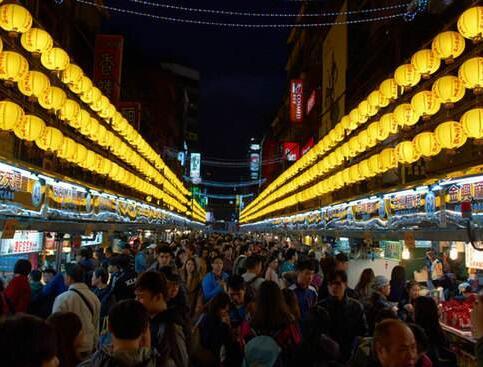TIANJIN, July 26 (Xinhua) -- Dressed in long gowns, two folk artists performed the Xiangsheng, or crosstalk comedy, and interacted with the excited audience at an indoor night market in north China's Tianjin municipality.
Sun Tao, a staff member of a crosstalk comedy theater, said Chinese crosstalk comedy came back to the audience via the new platform. Meanwhile, they could taste local snacks and watch the exhibition of some intangible cultural heritage in the night market in Hedong District.
Decorated with red lanterns, traditional postboxes and old-fashioned coal stoves, this night market has attracted more than 70,000 people in the first 10 days after it opened in early July with a total profit of 3.2 million yuan (about 465,000 U.S. dollars).
Local authorities also took measures to manage and safeguard the night market.
He Yunxiang, deputy director of the Bureau of Commerce in Hedong District of Tianjin, said they have focused on solving the problems of garbage disposal, water and gas supplies and noise pollution of the night market.
Dong Jinping, with the Tianjin Municipal Public Security Bureau, said they have strengthened the police force around the night market and increased the frequency of patrols for a peaceful and stable night economy.
Five Avenue, a century-old historical block in Tianjin, also showed its unique charm and vitality through its nighttime economy. More than 900,000 people have visited here during the first two months since the night market opened on May 18.
Shen Yuxin, a waiter at a dessert shop on the Five Avenue, said they got over 20,000 orders each day, "a lot more than before."
Tianjin now encourages malls, supermarkets and convenience stores to stay open later, and plans to build full-time stores.
Wang Yitong, a 25-year-old Tianjin resident, said people had more splendid nightlife now. "Extending the business hours of shopping malls and supermarkets offers us more convenience," Wang said.
The nighttime economy refers to business activities between 6 p.m. and 6 a.m. in the service sector. Many Chinese cities, especially metropolises such as Beijing, Tianjin and Shanghai, have rolled out plans to support nighttime consumption to drive economic growth.
According to Shanghai's plan, the city will draw up the development plan of the Nightlife Agglomeration Area and add more parking spaces, taxi waiting areas and late-night bus services.
Beijing extended the running hours of its subway Line 1 and Line 2 on Friday and Saturday, requiring the last train to depart after 12 o'clock at night since July 19.
China's GDP grew by 6.3 percent in the first half of this year, and consumption accounted for 60 percent, which continued to be the first driving force for the country's economic growth. Among them, nighttime consumption shows giant potential, according to the National Bureau of Statistics.
"Night economy has become a new engine to enhance the city's vitality and promote China's development," said Wang Xiaoguang, deputy director of the economics department in National Academy of Governance.
China's night catering consumption jumped 47 percent in 2018 from a year earlier, 2 percent higher than the daytime growth, according to a report released by the China Tourism Academy (CTA) and Meituan, a Yelp-like Chinese online city guide.
"The total retail sales of social goods at nighttime in Shanghai is close to a half of the daytime," said Dai Bin, president of the China Tourism Academy, adding that 80 percent of 657 tourism companies are willing to increase investment in night travel.
During the May Day holiday this year, the total consumption volume at night accounted for 29.92 percent of the whole day, according to the China Tourism Academy and China UnionPay Merchant Services Co., Ltd.
Wang said Chinese cities have developed rapidly in the past few decades, but some urban centers lacked vitality due to such factors as high house prices, long commuting time and the accessible and convenient networks.
"It is necessary to reform from the supply side, roll out policies and improve the service quality," said Wang.
In 2018, the total revenue of Chinese tourism reached nearly 6 trillion yuan. Most of the consumption occurred in the daytime.
If the "golden four hours" (from 6 p.m. to 10 p.m.) of the night consumption can be fully developed, the revenue of Chinese tourism is expected to increase about 600 billion yuan, according to Dai.
"Nighttime economy meets people's expectations, motivates industrial and commercial enterprises, and spurs the enthusiasm of local governments," Dai said.




 A single purchase
A single purchase









